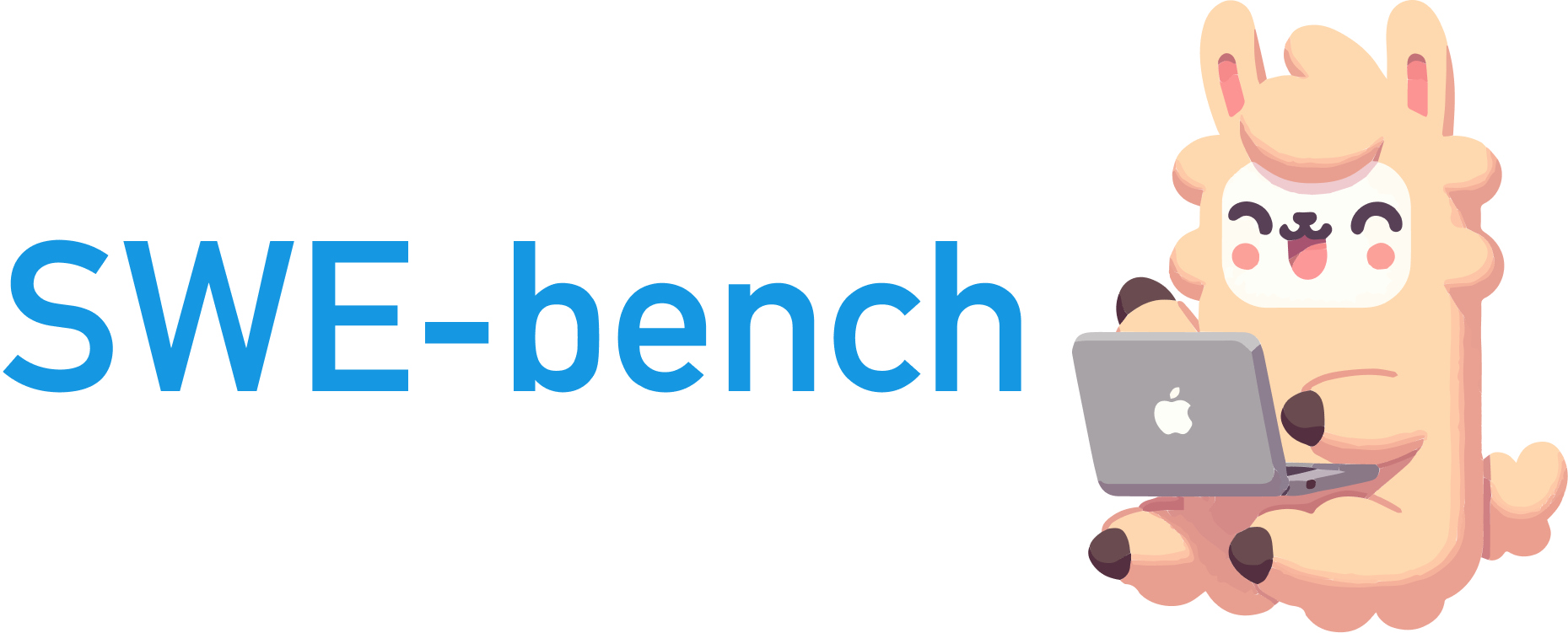Code and data for our ICLR 2024 paper SWE-bench: Can Language Models Resolve Real-World GitHub Issues?


Please refer our website for the public leaderboard and the change log for information on the latest updates to the SWE-bench benchmark.
- [Apr. 15, 2024]: SWE-bench has gone through major improvements to resolve issues with the evaluation harness. Read more in our report.
- [Apr. 2, 2024]: We have released SWE-agent, which sets the state-of-the-art on the full SWE-bench test set! (Tweet 🔗)
- [Jan. 16, 2024]: SWE-bench has been accepted to ICLR 2024 as an oral presentation! (OpenReview 🔗)
SWE-bench is a benchmark for evaluating large language models on real world software issues collected from GitHub. Given a codebase and an issue, a language model is tasked with generating a patch that resolves the described problem.
To access SWE-bench, copy and run the following code:
from datasets import load_dataset
swebench = load_dataset('princeton-nlp/SWE-bench', split='test')To build SWE-bench from source, follow these steps:
- Clone this repository locally
cdinto the repository.- Run
conda env create -f environment.ymlto created a conda environment namedswe-bench - Activate the environment with
conda activate swe-bench
You can download the SWE-bench dataset directly (dev, test sets) or from HuggingFace.
To use SWE-Bench, you can:
- Train your own models on our pre-processed datasets
- Run inference on existing models (either models you have on-disk like LLaMA, or models you have access to through an API like GPT-4). The inference step is where you get a repo and an issue and have the model try to generate a fix for it.
- Evaluate models against SWE-bench. This is where you take a SWE-Bench task and a model-proposed solution and evaluate its correctness.
- Run SWE-bench's data collection procedure on your own repositories, to make new SWE-Bench tasks.
We've also written the following blog posts on how to use different parts of SWE-bench. If you'd like to see a post about a particular topic, please let us know via an issue.
- [Nov 1. 2023] Collecting Evaluation Tasks for SWE-Bench (🔗)
- [Nov 6. 2023] Evaluating on SWE-bench (🔗)
We would love to hear from the broader NLP, Machine Learning, and Software Engineering research communities, and we welcome any contributions, pull requests, or issues! To do so, please either file a new pull request or issue and fill in the corresponding templates accordingly. We'll be sure to follow up shortly!
Contact person: Carlos E. Jimenez and John Yang (Email: {carlosej, jy1682}@princeton.edu).
If you find our work helpful, please use the following citations.
@inproceedings{
jimenez2024swebench,
title={{SWE}-bench: Can Language Models Resolve Real-world Github Issues?},
author={Carlos E Jimenez and John Yang and Alexander Wettig and Shunyu Yao and Kexin Pei and Ofir Press and Karthik R Narasimhan},
booktitle={The Twelfth International Conference on Learning Representations},
year={2024},
url={https://openreview.net/forum?id=VTF8yNQM66}
}
MIT. Check LICENSE.md.

